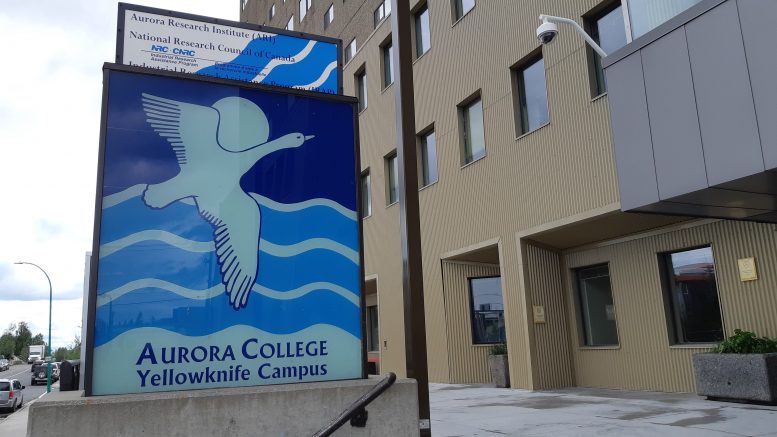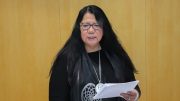Aurora College’s relationship with the territorial government has been “detrimental to the growth and development” of the college.
This statement comes from a discussion paper published by the Government of the Northwest Territories on its proposed governance model for the upcoming polytechnic university.
The paper adds the relationship has also hindered the “GNWT’s ability to advance its broader post-secondary education and research policy objectives”.
Now, the GNWT is looking to improve the relationship by restructuring the governance of the polytechnic university.
Since 2017, the college has been led by a single administrator reporting to the minister of education, culture and employment.
This decision came up again in the Legislative Assembly earlier this year, with several MLAs criticizing the fact there is still no board three years after the “temporary” move to go to an administrator.
The GNWT is now proposing establishing a bicameral governance model, a term to refer to the two bodies with different roles: a board of governors and a senate.
The board will be in charge of strategy, including monitoring the president and university’s performance, managing risks, overseeing capital assets, among a host of other responsibilities.
The paper proposes the board be made up of 12 members:
- The college president
- One instructor, elected by other instructors
- One employee, elected by non-instructor staff
- One student, elected by students
- Eight people that are appointed by the minister of ECE, five must be NWT residents and of those five, at least three are Indigenous
For its part, the senate will be responsible for the academic side of things, like establishing new programs, research policies, and admission and graduation requirements among others.
The paper doesn’t put a specific number of members to the senate, but includes:
- The president
- Vice presidents
- Chairs
- Program heads
- Board representatives
- Representatives for faculty and students
The GNWT proposes changes to the Aurora College Act to first create the Aurora College Academic Council. This council will help guide the transition to a polytechnic and into a senate.
A new approach to representation
Prior to the GNWT removing the Aurora College board, members were chosen to balance regional representation.
“The proposed board for the polytechnic university takes a different approach to regional representation by focusing instead on NWT residents, and also specifically Indigenous NWT residents,” reads the paper.
The paper focuses on the future board’s responsibility in engaging in northern programming.
“Perhaps most importantly, a future polytechnic university must work in partnership with the GNWT, Indigenous governments and Northern businesses on a wide range of academic and research initiatives,” it says.
Despite this assertion, technically the proposed governance model only requires three Indigenous representatives on the board.
The paper doesn’t set out a timeline for when these board changes will happen.
The precise timing of governance changes are not provided in the discussion paper. This is because the overall timing of the transformation will be part of the Implementation Plan that is anticipated for release in fall 2020.
In the meantime, NWT residents can have their say on how the polytechnic university will be structured here. Residents have until Sept. 14 to respond.
Francis was a reporter with CKLB from January 2019 to March 2023. In his time with CKLB, he had the immense pleasure and honour of learning about northern Indigenous cultures.









